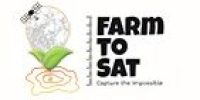Bridge Inspections
Bridge inspections using drones have revolutionized infrastructure maintenance by offering safe, efficient, and cost-effective solutions. Equipped with high-resolution cameras and sensors, drones provide detailed visuals of hard-to-reach areas, reducing the need for risky manual inspections. This technology ensures faster assessments, accurate data collection, and improved decision-making, enhancing safety and extending the lifespan of critical bridge structures.
What is a Bridge Inspections?
Bridge inspections using drones have revolutionized infrastructure maintenance. Equipped with high-resolution cameras and sensors, drones safely and efficiently inspect hard-to-reach areas, reducing the need for manual inspections in hazardous conditions. They provide detailed imagery and real-time data, enabling accurate assessments of structural integrity. This innovative approach saves time, minimizes costs, and enhances safety, ensuring bridges remain reliable and secure for public use.
Farmtosat
Visual Damage Assessment
Drones equipped with high-resolution cameras provide a detailed visual assessment of a bridge’s condition. Inspectors can quickly identify cracks, spalling, rust, and other visible damage without the need for scaffolding or bucket trucks. The real-time footage and imagery allow inspectors to zoom in on problem areas and capture detailed evidence for further analysis, saving time and reducing manual labor.
Farmtosat
Hard-to-Reach Area Inspections
Traditional methods often struggle with inspecting hard-to-access parts of a bridge, such as undersides, tall piers, and suspension cables. Drones can easily navigate these areas, capturing crucial data without requiring inspectors to physically access dangerous locations. This ability enhances safety and ensures no part of the structure is overlooked during inspections.
Farmtosat
Thermal Imaging for Structural Integrity
Drones equipped with thermal imaging cameras can detect subsurface issues that are invisible to the naked eye. Thermal data helps identify problems such as water intrusion, delamination, and heat anomalies caused by structural deficiencies. This technology is particularly useful for assessing concrete bridges, as it helps inspectors detect weaknesses early and plan maintenance before issues escalate.
Farmtosat
Corrosion and Material Degradation Monitoring
Metallic components of bridges, such as steel beams and cables, are susceptible to corrosion due to environmental factors. Drones provide close-up views of these components, enabling inspectors to monitor rust formation, surface degradation, and paint wear over time. This continuous monitoring aids in planning timely interventions to prevent further deterioration.
Farmtosat
Corrosion and Material Degradation Monitoring
Metallic components of bridges, such as steel beams and cables, are susceptible to corrosion due to environmental factors. Drones provide close-up views of these components, enabling inspectors to monitor rust formation, surface degradation, and paint wear over time. This continuous monitoring aids in planning timely interventions to prevent further deterioration.
Farmtosat
LiDAR Mapping for Structural Analysis
LiDAR (Light Detection and Ranging) technology, when integrated with drones, allows for the creation of precise 3D models of bridges. These models enable engineers to analyze structural geometry, detect misalignments, and monitor deformations or shifts over time. LiDAR-equipped drones are especially beneficial for inspecting large or complex bridges, providing data that informs long-term maintenance and repair strategies.
Farmtosat
Post-Disaster Assessments
After events such as earthquakes, floods, or severe storms, quick bridge inspections are crucial to assess damage and ensure safety. Drones can be deployed immediately to capture detailed images and videos of affected structures, providing essential data for emergency response teams. This rapid assessment helps prioritize repairs and reopen critical transportation routes more quickly.
Farmtosat
TESTIMONIALS
Choosing the Right Drone and Equipment for Mine Mapping

